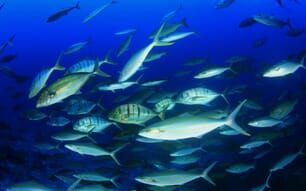As part of a diverse, multi-stakeholder process, the public is encouraged to provide feedback to draft standards intended to minimise the potentially negative impact seriola and cobia aquaculture can have on the environment, farm workers and communities. The draft standards are the product of a World Wildlife Fund-coordinated roundtable that includes producers, conservationists, scientists, and other leaders from across the value chain.
“Key to meaningful and credible aquaculture standards is full transparency and diverse participation in the process, and that’s exactly what we have with these Dialogues,” said Jose Villalon, Vice President of WWF’s Aquaculture Programme and coordinator of the full set of Dialogues.
“By integrating input and expertise from a range of voices involved with seriola and cobia production, these standards will be critical in conserving the world’s oceans at the scale needed to meet rising global demand for farmed seafood.”
The Dialogue Steering Committee that manages the process will use all feedback received during the public comment periods – as well as at the third public meeting of the Dialogue in Tokyo 12-13 February to revise the standards. Following that, a second public consultation period will take place in May 2013, with the standards expected to be finalised in 2013. This open and transparent process is in line with international guidelines for standard setting created by the ISEAL Alliance.
The seriola and cobia standards, when finalised, will be the seventh set of standards developed by the Aquaculture Dialogues. Standards have been finalised for pangasius, tilapia, abalone, bivalves, salmon and freshwater. Standards for shrimp are expected to be finalised this year.
The ongoing process of managing the standards and amending them to take new technology and science into consideration is coordinated by the Aquaculture Stewardship Council (ASC), an independent not-for-profit organisation dedicated to creating measurable and performance-based standards for responsible aquaculture. In 2012, the first ASC-certified products – pangasius and tilapia – came to market.
Those who intend to provide comment to the draft standard can access the standards and comment form by visiting: http://wwf.worldwildlife.org/site/PageNavigator/SeriolaandCobiaAquacultureDialogueDraftStandards.html
All comments must be received by April 12, 2013.



